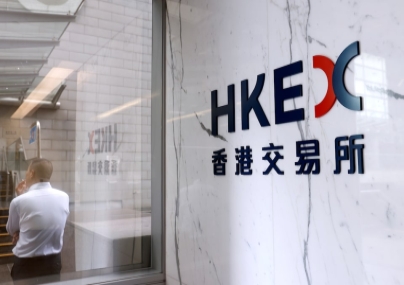
Hanergy’s stock plunge has puts passive investors in an unwelcome spotlight, say Denny Thomas and Muralikumar Anantharaman
Skip to
The blistering sell-off in Chinese solar firm Hanergy Thin Film Power Group last month burnt several index-tracking stock funds, exposing the flaws in some of these investment structures in a volatile market like China’s.
One prominent fund soon announced changes to the index it tracked following Hanergy’s almost 50 percent tumble, suggesting other funds could follow suit and raising more worries for investors who were trapped when trading in the shares was halted.
Guggenheim Investments, which manages about $200 billion, said the MAC Global Solar Energy Index tracked by its solar exchange-traded fund (ETF) was dropping Hanergy as a constituent, meaning the fund will have to sell its holdings of the Chinese firm when shares resume trading.
Critics of ETFs, which mostly track indexes passively, say while these products generally of¬fer more liquidity than traditional funds, they are sometimes prone to illiquidity risks and redemption pressures especially when a big component in their underlying basket of shares faces a trading halt.
That’s especially applicable to the China markets, where ETFs have emerged as a popular investment tool. China-focused equity ETF and index assets under management have grown more than three-fourths to $132 billion over the past five years to end-March, data from fund tracker Lipper showed.
Over the same period, assets of actively-managed China-focused stock funds have shrunk 12 percent to $199 billion.
“While ETFs are great investment tools, competent active managers could be better equipped to deal with some situations. Every ETF is different and investors must be aware of the underlying securities and treat them differently,” says Jackie Choy, ETF strategist for fund tracker Morningstar Asia.
Last month, shares in Hanergy plunged 47 percent in less than an hour, wiping $18 billion off its market worth before being suspended at the company’s request. Its shares had nearly trebled since the start of 2015 until Wednesday.
Some of the world’s biggest passive money managers, including BlackRock Inc and Vanguard, were part of Hanergy’s journey that in two years lifted a little-known small-cap stock to a near $50 billion solar giant before the slide.
BlackRock Institutional Trust Company, for instance, is Hanergy’s sixth-biggest shareholder, owning about $183 million worth of its shares.
Back to topBIGGEST HIT
One of the worst hits was taken by the $439 million Guggenheim Solar ETF, which had Hanergy as its single-biggest holding and had been buying into the stock recently, perhaps until end-April, according to Thomson Reuters data. The fund tumbled 7.8 percent in New York trading the same day.
The troubles for passive managers are compounded when stocks are suspended from trading. In Hong Kong and China, stocks can sometimes are halted for months and years.
While a temporary suspension may not hurt ETFs which have the stock in their basket, a prolonged freeze may induce greater tracking error for the ETFs and create liquidity problems for the ETF provider, as they will have to find other proxies to substitute for the stock.
For investors, a fund’s high concentration of holdings in one stock may even force it to suspend redemptions, making it hard to exit the investment, some experts said.
While Guggenheim may have averted an immediate disaster by reducing the selling pressure from active investors in Hanergy using the ETF as a proxy to liquidate their holdings, the more the shares remain suspended the greater the tracking error for the ETF, reducing its attractiveness.
Marco Montanari, head of passive asset management, Asia Pacific at Deutsche Bank, says ETF providers can “take the extreme step” of suspending redemptions, locking investors out of their funds, if dramatic volatility in the ETF’s underlying basket of securities threaten its liquidity.
Hong Kong regulator ‘probes Hanergy for market manipulation’
By Clare Jim
Chinese green energy firm Hanergy is under investigation by Hong Kong’s market watchdog for alleged market manipulation, a source familiar with the situation told Reuters.
The source said the Securities and Futures Commission (SFC) had been investigating Hanergy Thin Film Power Group for several weeks. “They’re being investigated over market manipulation,” the source said.
Hanergy officials were not available to comment on repeated calls to their Beijing offices. A spokesman for the SFC declined to comment.
Before the plunge, Hanergy’s market value had soared six-fold in the past year to $37 billion - more than its nearest two dozen rivals combined - even as analysts and market watchers questioned some of its more bullish pronouncements.
More than 170 million Hanergy shares were traded in the first hour of the calamitous trading session, far more than its daily average over the past month, according to Thomson Reuters data.
At the request of the Hong Kong Stock Exchange, the company put out a statement in March saying it did not know why its stock had been rising so strongly.
It has been one of the top traded stocks under the landmark Shanghai-Hong Kong stock connect scheme, which since last November has allowed mainland traders to deal in Hong Kong stocks and vice versa.
Back to top


